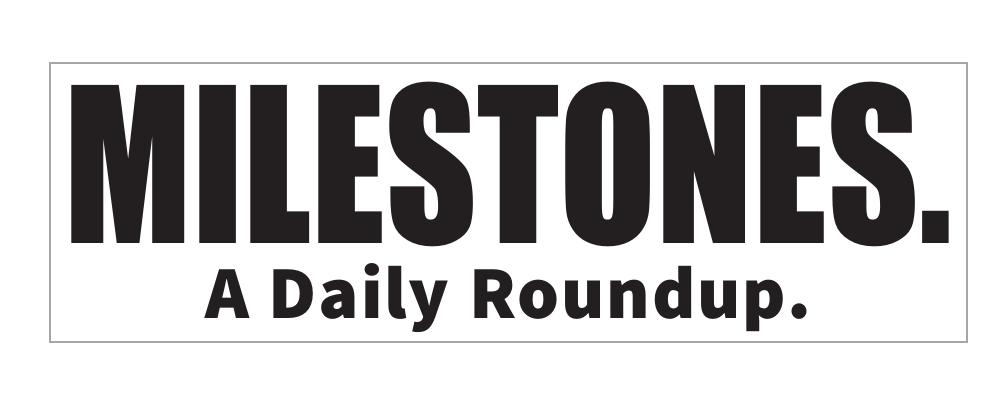Milestones: February 7, 2024

‘BRITISH INVASION’ — TODAY, FEB. 7, 2024, MARKS THE 60TH ANNIVERSARY OF THE BEATLES’ LANDING IN THE UNITED STATES FOR THEIR FIRST AMERICAN TOUR. The musical “British Invasion” was launched when the Fab Four landed at New York City’s recently-renamed John F. Kennedy Airport in southern Queens (its previous name was Idlewild Airport). The Beatles’ welcoming committee was a crowd of 3,000 screaming fans — most of them girls. Two nights later, after the arrival of John Lennon and Ringo Starr — both 23 — Paul McCartney (21) and George Harrison (20), the band performed on “The Ed Sullivan Show,” attracting 73 million viewers. The group then made their first public concert appearance in the United States on Feb. 11 at the Coliseum in Washington, D.C., with 20,000 fans present. The next day, the Beatles gave two back-to-back performances at Carnegie Hall.
During April 1964, all five best-selling U.S. singles were Beatles songs.
✰✰✰

Brooklyn Boro
View MoreNew York City’s most populous borough, Brooklyn, is home to nearly 2.6 million residents. If Brooklyn were an independent city it would be the fourth largest city in the United States. While Brooklyn has become the epitome of ‘cool and hip’ in recent years, for those that were born here, raised families here and improved communities over the years, Brooklyn has never been ‘uncool’.